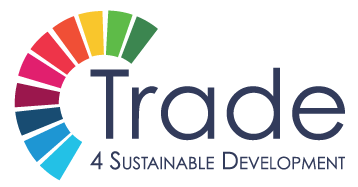Ellen Huan-Niemi, Senior Scientist, Natural Resources Institute Finland (Luke)
Emmanuel N. Abbey, Senior Lecturer, University of Ghana
There is a concern regarding whether agri-food trade can promote sustainability and the attainment of the Sustainable Development Goals (SDGs). This is particularly important given that gains from trade are not entirely equitable. Profound systemic transformations are required to enhance the interlinkages between agri-food trade and the SDGs.
The required transformations at the global, regional and local levels can be multifaceted, interconnected, and subject to evolution over time. One transformation that could be critical for the attainment of the SDGs is technological and institutional innovations in agri-food systems. Over the past century, these have brought dramatic advances in human well-being worldwide in various ways.
Low-cost renewable energy is a key innovation
Investments in renewable energy, particularly in solar parks and hydrogen production, are gaining momentum in Namibia and other regions. Namibia is positioning itself as a leader in low-cost green hydrogen production (technological innovation) due to its abundant solar resources. The Namibian government is actively promoting public-private partnerships to leverage private sector expertise and resources (institutional innovation), which anticipates $9.4 billion in investments aimed at producing hydrogen through solar energy. This initiative may eventually expand to include a terminal for ammonia production, a key ingredient in fertiliser manufacturing. This would enable Namibia to become self-sufficient in producing fertilisers that are needed for agricultural intensification, thereby creating an agri-food surplus that can be traded in the region.
Another transformation is the significant improvement in infrastructure that can support both livelihood and trade in agri-food. The setting up of cross-sectoral, multilevel and multi-actor governance and institutional frameworks within the agri-food and trade systems are vital for the transformations. These structures serve as bridges that transcend the traditional institutional boundaries of agriculture, public health, education and development planning, aiming to establish sustainable agri-food systems beyond the constraints of continuous economic growth.
Climate-smart agriculture (CSA) has been introduced as a transformative approach aimed at managing the existing relationship between agricultural systems and climate change. The CSA strategy is designed to achieve a triple set of objectives, encompassing the sustainable enhancement of productivity and income levels, adaptation to climate change, and the mitigation of greenhouse gas emissions.
Achieving the SDGs in a holistic way
Effective implementation of SDGs in agri-food trade requires a multifaceted approach, including policy coherence, stakeholder engagement and practical application of knowledge. The trade-offs among various SDGs in the different sustainability dimensions (environmental, social, and economic) further complicate this relationship, necessitating integrated strategies that address multiple goals simultaneously to achieve the SDGs in a holistic way.
An example of a trade-off is the fact that expanding agricultural production to meet global demand can lead to deforestation and loss of biodiversity; therefore, increasing palm oil production often results in significant environmental degradation, impacting ecosystems and carbon storage (environmental dimension). However, the expansion of palm oil production has contributed to income generation and employment (social dimension) in Malaysia and Indonesia. Therefore, environmental provisions for agri-food trade that are effective in deterring damage to the ecosystem because of expanding trade and agricultural production would help to achieve the SDGs more comprehensively.
The EU Deforestation Regulation (EUDR) to curb EU markets’ impact on global deforestation and forest degradation can help in enforcing the environmental provisions in regional trade agreements. The EUDR requires companies trading in cattle, cocoa, coffee, oil palm, rubber, soya and wood to conduct extensive due diligence on the value chain to ensure the goods do not result from recent deforestation, forest degradation or breaches of local environmental and social laws. The EUDR includes strict penalties for non-compliance, thus enhancing the accountability of environmental provisions for agri-food trade.
Gains from trade are shared equitably
The case of international agri-food trade provides a more compelling case in properly understanding the heterogeneities in how the gains can be shared—in terms of wages, consumption and welfare as well as the quality of jobs available. Particularly for agri-food trade, these issues are murky because of the dynamics concerning land (and asset) ownership, ownership rights and the level of female empowerment in agriculture.
Gender transformative models are needed to emphasise gender norms and power relations that promote the leadership of women in agricultural trade that can address the challenges of gender inequality in agri-food trade. Examples include fostering a physical and sociocultural environment that supports learning and empowerment for women, public awareness campaigns to promote women’s access to education, land titling programmes and agricultural extension services targeted at women farmers and access to finance for women entrepreneurs.
Agri-food trade could promote the SDGs, but the impact depends on how agri-food trade is structured and governed. When agri-food trade is conducted inclusively and sustainably as well as the gains from trade are shared equitably, trade can contribute significantly to the SDGs.
Contributions of
Ellen Huan-Niemi, Senior Scientist, Natural Resources Institute Finland (Luke)
Emmanuel N. Abbey, Senior Lecturer, University of Ghana
More information:
Armah, N. A. R, Quartey, P., Turkson E. F., Abbey, E. N., Mawuenyega, M. B., and Huan-Niemi, E. 2025. Interlinkages Between Agri-Food Trade and the SDGs at the Global, Regional and Local Level. Journal of International Development, 0:1–27. https://doi.org/10.1002/jid.3994


Leave a Reply